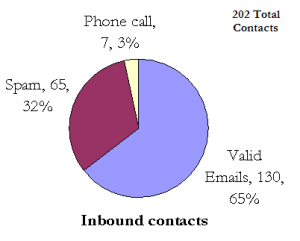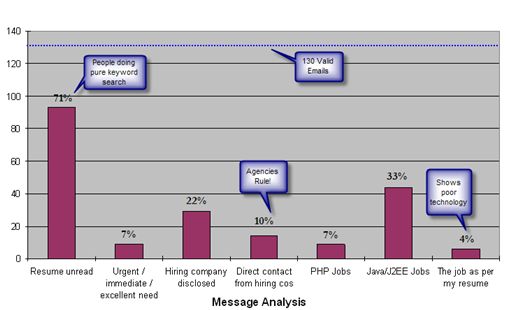 In 2010, Bitzer Mobile’s Bangalore R&D centre came to life in a living room in Marathahalli. Ravi (first team member in India) and I wrote much of the first version of Bitzer’s governance console on our respective couches and coffee-tables at Cha Bar in Leela Palace, before we moved into our own office.
In 2010, Bitzer Mobile’s Bangalore R&D centre came to life in a living room in Marathahalli. Ravi (first team member in India) and I wrote much of the first version of Bitzer’s governance console on our respective couches and coffee-tables at Cha Bar in Leela Palace, before we moved into our own office.
In a year, we got a team of kick-ass engineers in place. They built critical parts of the product. However, the first few hires were not easy and was rife with people who kicked tires without joining us. Apart from engineers, QA, office boy, accountant, office manager positions, I also on-boarded an amazing head of engineering which took 12 months!
In 18 months, reviewed close to 2,000 resumes, conducted roughly 400 phone calls and code-jam sessions, followed by approximately 50 on-site interviews, leading to the 15 people we have in Bangalore. I am lucky to work with them.
Here is some gyaan about hiring your first 15 key team members in India:
Always be hiring
Hiring is the other full-time job of a founder, apart from writing code, doing sales and marketing or speaking at events. Most startups start the hiring process, do a few critical hires and then get bureaucratic. I have seen startup founders who start it well and then delegate it to their direct reports or to “managers”. There is a single rule for always-on hiring process–The founders and the first five hires should hire the next 500 and be part of every freaking hiring decision making process.
Use the tools
We started using Recruiterbox from the get-go. I can brag that we were one of the early adopters of this application. We got close to 3,000 resumes in 18 months. Every resume reviewed, annotated and passed around within the application itself. In the first 12 months, every candidate who submitted a resume and was not a fit got a response. However, we stopped the response due to increased spam and sheer volume, but made a point to respond to anybody with whom we had a call.
Most hiring managers fail at the tools. They continue to rely on e-mail for managing the resume queue. Moreover, there is no context if the resume moves around and gets passed as a solitary reaper. The interviewer has to start all over again! Wastes time and energy.
Go deep beyond the interview
Go beyond the technical “chops”. Discover the person you are hiring — pose him left-handed questions, personally take the candidate out for lunch/dinner, let your team take him out for lunch/dinner, have casual conversations, spend time with the candidate away from office. Get as much facetime as possible before pulling the trigger.
You are a startup, find a right match
Just like there are rules of marriage (some archaic), there are rules for early startup hires. It’s difficult if not impossible to get an engineer from top R&D organizations in India to come and join your founding team. We were lucky to have applicants from these companies but a match could not be made. These were some amazing engineers, and to my surprise they were ready to take a massive pay cut. However, based on my gut feeling, as an early stage startup, we were not ready for them.
Don’t boss the interview feedback
We lost couple of solid candidates, which the team felt otherwise, whereas I wanted them on-board. The rule was simple, if there is one negative and the argument cannot be one in favour of candidate, then it’s a NO. In one situation, I rescinded a verbal offer, because we jumped the gun as the fifth interviewer went out for a walk and we did not take his feedback into consideration before making a verbal offer. The candidate was shocked that we changed our mind in less than 60 minutes. It was a tough conversation. This one simple thing gave me a solid trust with the team. I lost a few good candidates (well, I still think they were good!) but that built a foundation for the hiring process.
Hiring senior talent–Not everybody can build Adam’s bridge
Head of engineering is one of the toughest position I filled. I had an odd criteria in mind viz. 10 years of experience, hands-on, startup-guy, big company guy, product experience. Combine this that we are an unsexy reasonably funded startup, and that too in India, this made the job of finding the right person even tough. An engineering manager who is responsible for people’s career has to be humble, full of empathy and a kick-ass developer himself. Three things had to be ensured around his happiness and outlook (a) Not a boss (b) Keeps his family happy (c) Still hungry. It took me close to 12 months to fill this position. The CEO still chides me whether I was really hiring for this position or my progress reports were “cooked-up”. A wrong engineering manager is like arsenic, there are no visible bruises, but gnaws the company from inside, slowly. The engineering leader could make or break your company without anybody knowing about it. Compared to a developer, there are no straight-forward objective tests for a engineering manager.
There is one new rule I followed–Evaluated if the person continues to amaze after the third meeting (maybe a dinner at candidate’s home), fifth meeting (maybe a lunch with my family). Candidates who moved beyond my filter were then interviewed by pretty much everybody whom he is going to work with. Took time–But, I think, I got the best guy on board.
Count the intent (or rather lack of it)
In one situation, with the offer, I had to send our incorporation certificate, proving that we are a real company! In another, a candidate wanted to talk to the CEO, before doing a technical round. None of them joined. Whereas, motivated candidates would pick-up the phone, follow-up, show up on time. The biggest data point I have–from interview to offer, if the candidate has been punctual in taking calls, coming for onsite interviews, turning back the assignments, etc., it’s likely that he would accept the offer. Whereas, candidates who continue to move things around are just plain kicking the tires with you!
There are a lot of tactical things which cannot be disclosed publicly on this blog–without context it would misleading. However, there is only one goal–hire the people who like working with each other and can solve any problem given the right motivation and tools.
Happy hiring!

